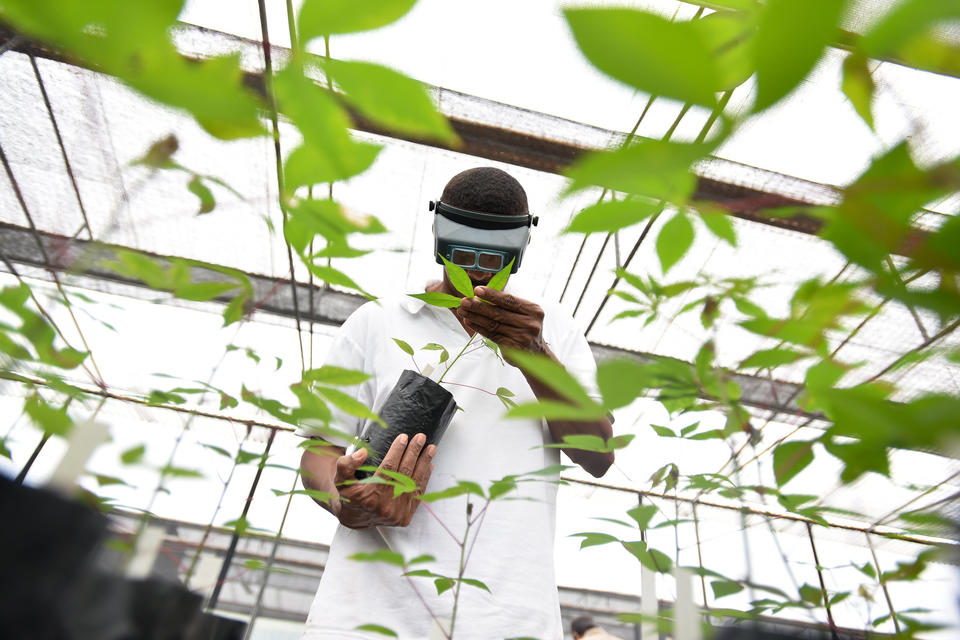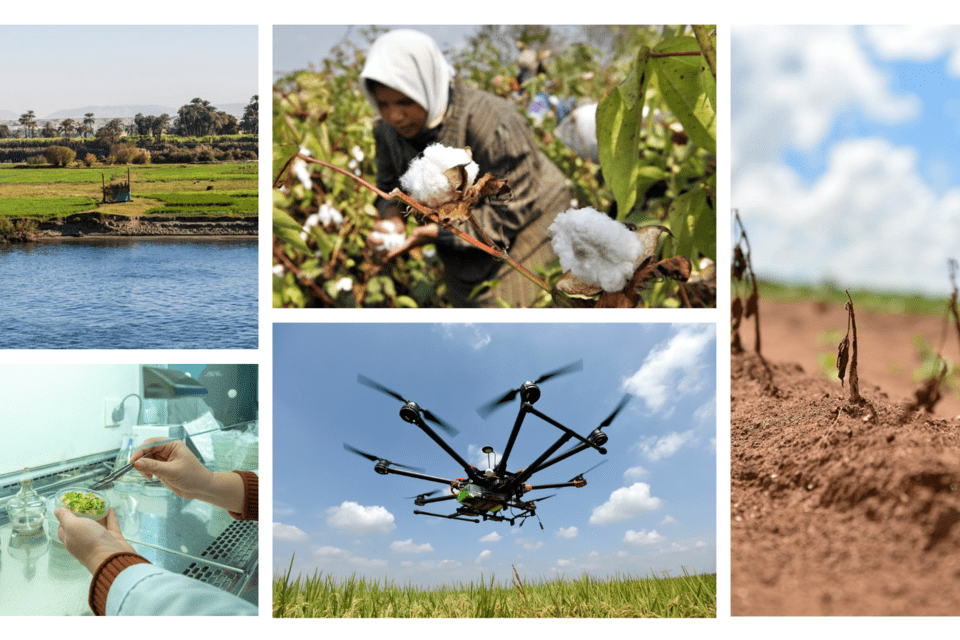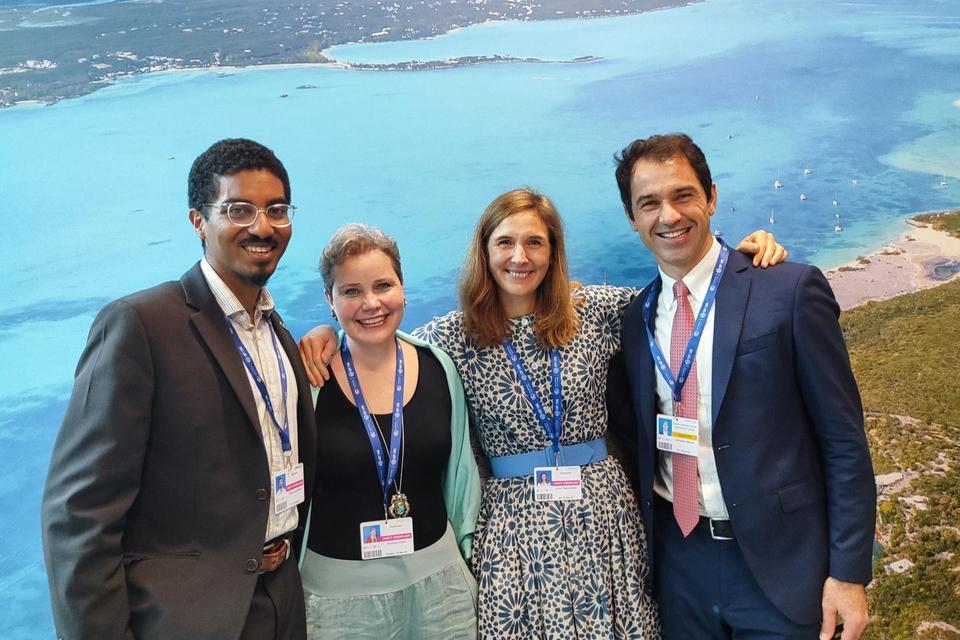Press and News 'Consultation Workshop: Agri-tech Innovation Ecosystem in Egypt’ with CGIAR and ASRT
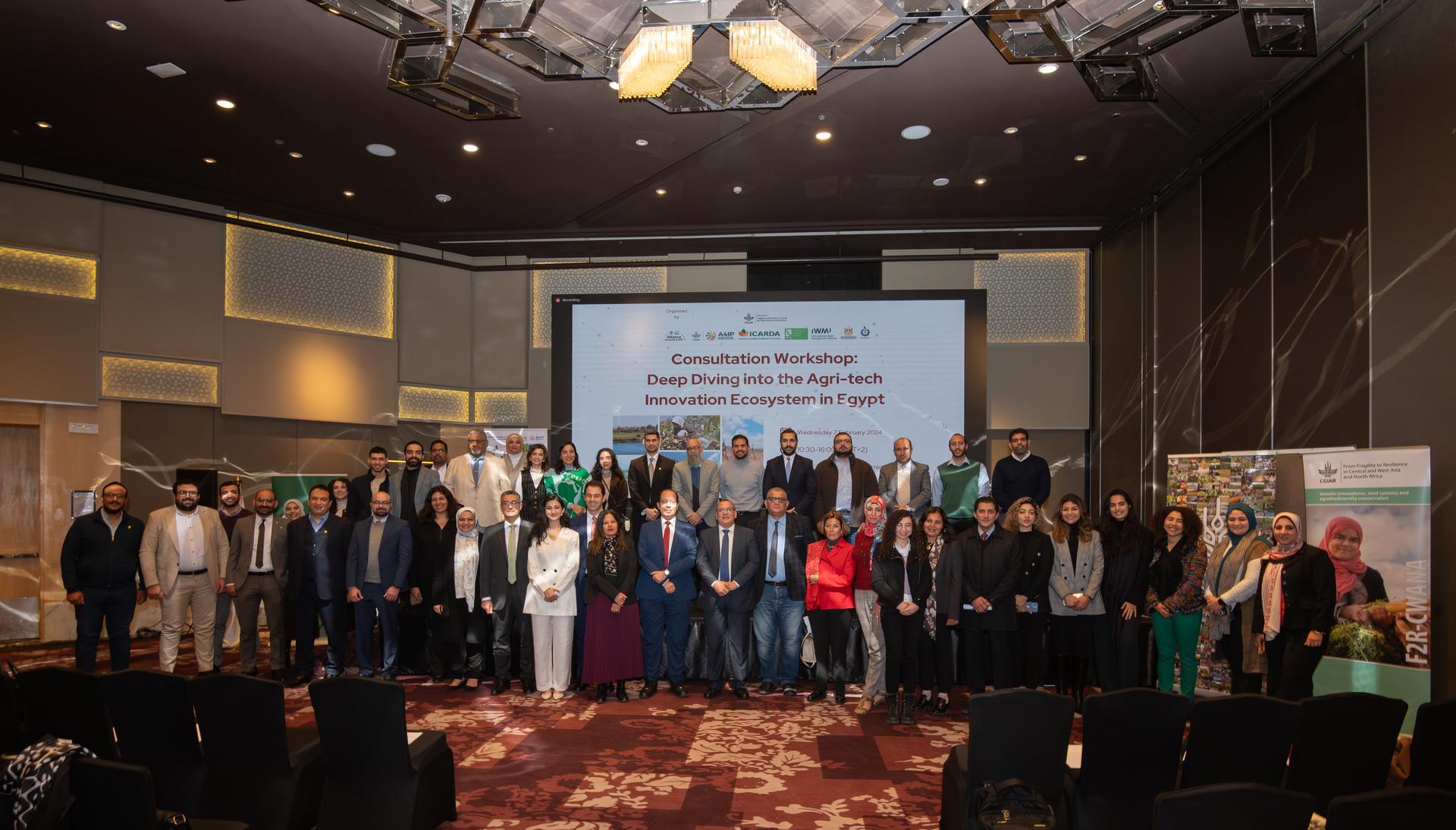
Experts in agriculture and innovation convened to engage in an open and inclusive dialogue on developing and deploying agri-tech solutions in Egypt.
Cairo (Egypt), 11 February 2024
On 7 February 2024 in Cairo, CGIAR Centers – Alliance of Bioversity International and CIAT, ICARDA, IWMI, IFPRI, and supported by the CGIAR Accelerate for Impact Platform (A4IP) – in collaboration with the Academy of Scientific Research and Technology of Egypt (ASRT) and under the auspices of the Ministry of Higher Education and Scientific Research of Egypt (MOHESR), hosted the “Consultation Workshop: Deep Diving into the Agri-tech Innovation Ecosystem in Egypt”.
The event was organized in the context of the CGIAR Regional Integrated Initiative ‘From Fragility to Resilience in Central and West Asia and North Africa’ (F2R-CWANA), seeking to respond to the climate, nutrition, and agricultural challenges affecting the region. Activities are focused on accelerating and scaling innovations and digital tools that can improve the climate resilience of the countries’ agriculture sectors and food value chains.
The workshop was attended by 80 participants, representing key ecosystem players, including accelerators, incubators, research centers, universities, agri-food companies, farmer organizations, and start-ups. High-level representatives from the Egyptian governmental as well as Italian Agency for Development and Cooperation, attended and actively engaged in the agenda.
The goal was to foster an open dialogue on creating a conducive environment for testing, validating, and deploying solutions that enhance the sustainability, resilience, and efficiency of agriculture in Egypt.
“ASRT is playing a significant role in nurturing the environment for research, development, and innovation in Agriculture field to achieve Egypt vision goals, ASRT’s efforts have supported many initiatives, but there is still much to do”, said Prof. Gina Al-Feki, Acting President of ASRT, in her welcoming speech. “With the commitment of both national and international partners, we are dedicated to finding innovative solutions that benefit everyone. Let’s work hand in hand to turn discussions into actionable recommendations for tangible, real-life solutions.”
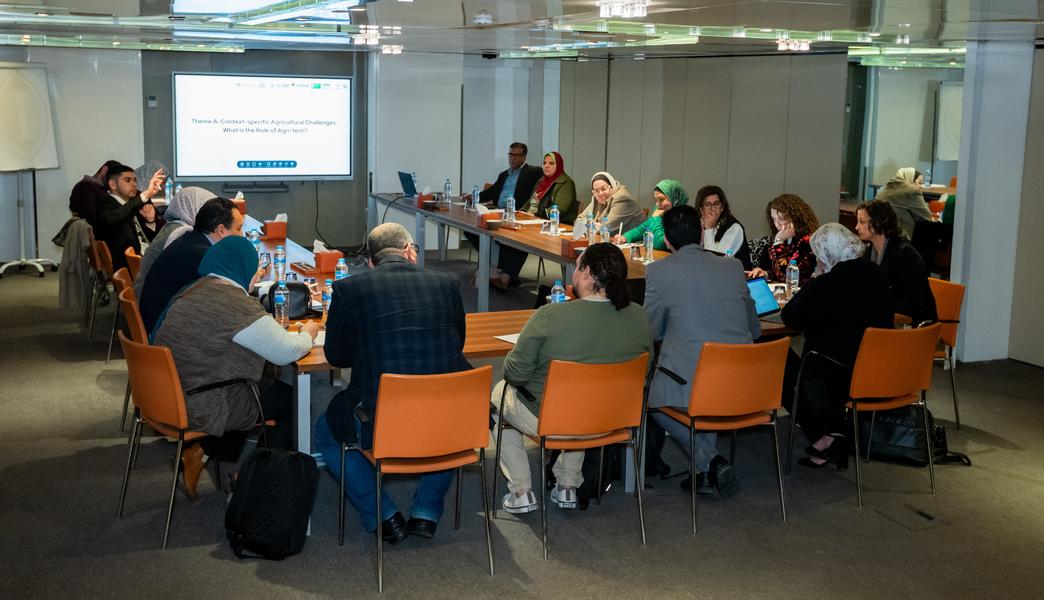
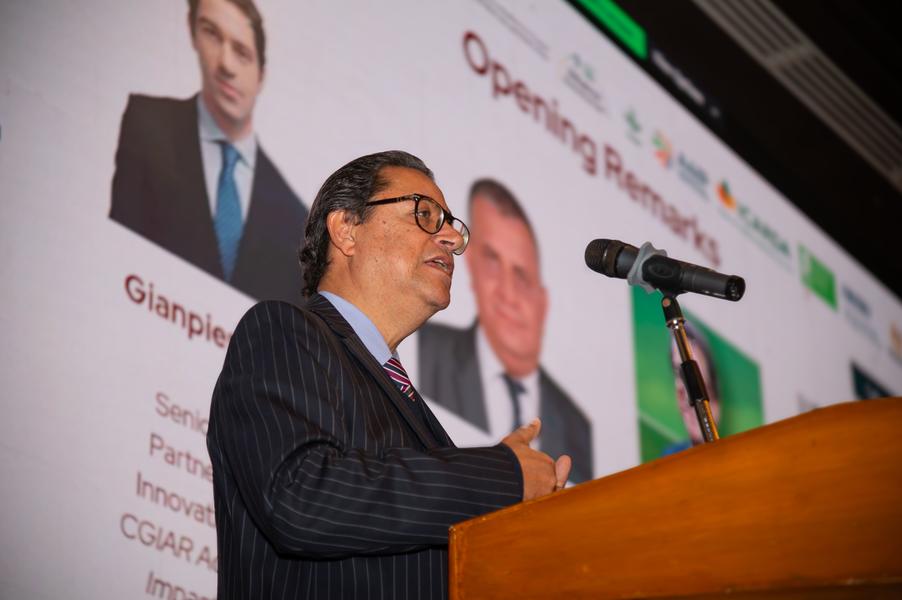
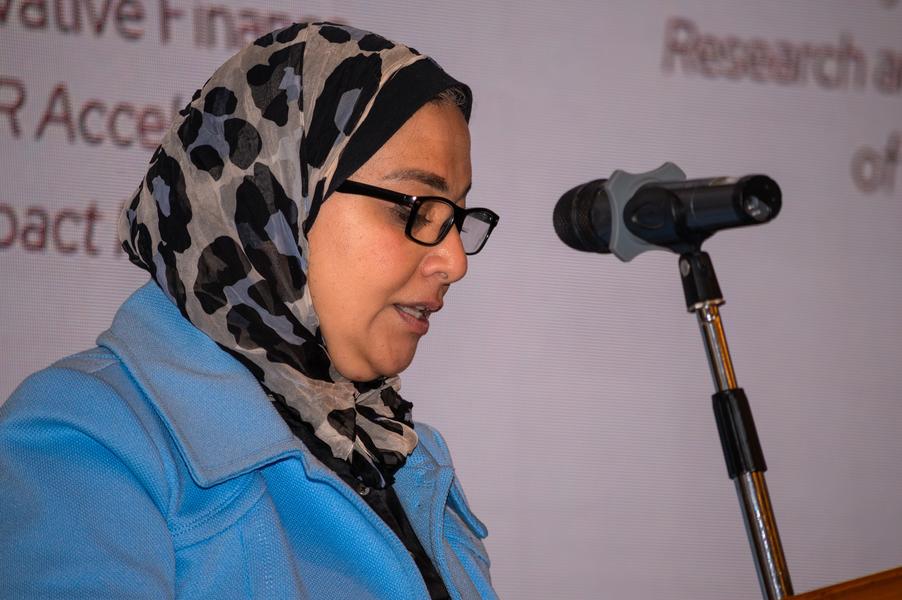
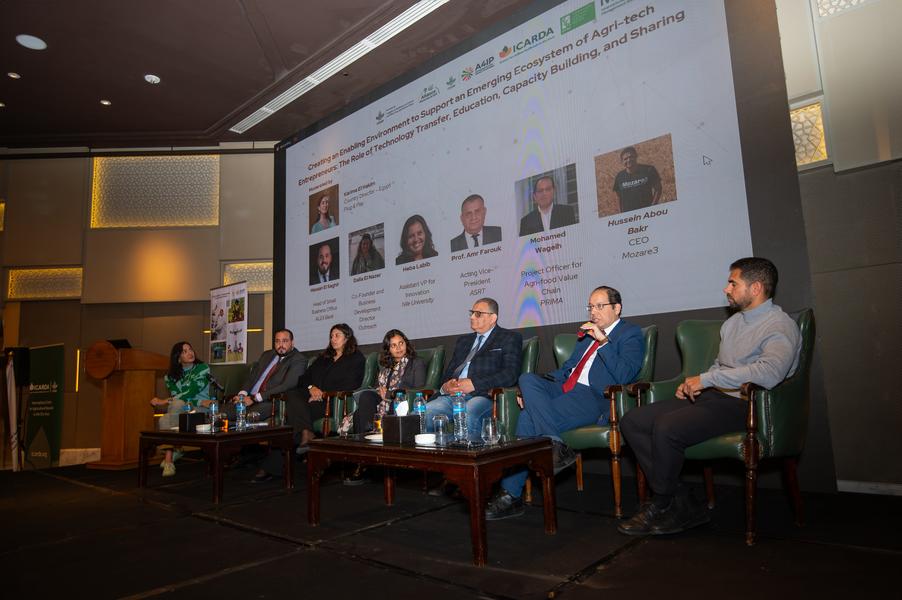
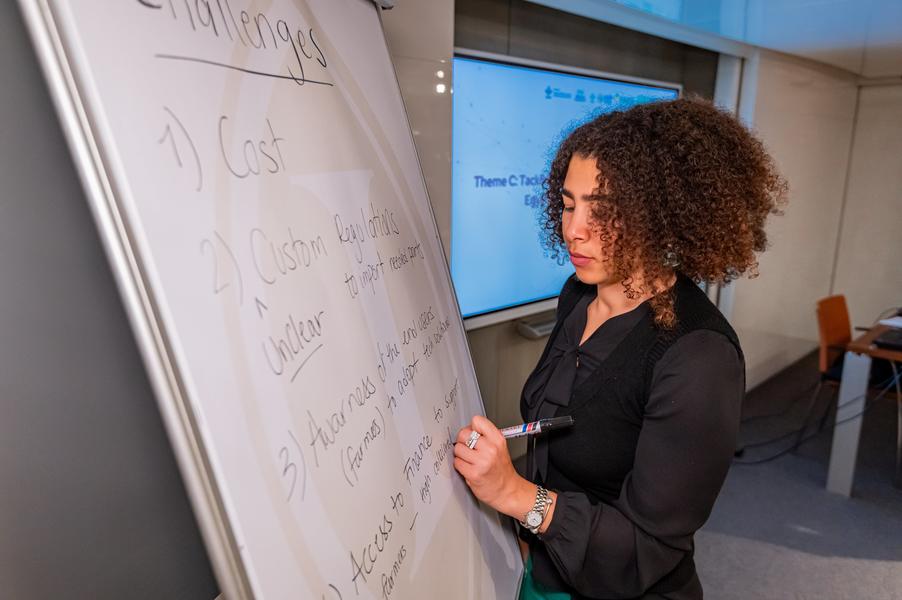
“High-level consultations with partners like Egypt’s Academy of Scientific Research and Technology empower CGIAR to pioneer innovations that address challenges such as soil salinity or climate impacts by driving progress towards sustainable agri-system”, stated Eng. Aly Abousabaa, CGIAR’s Regional Director of the Central and West Asia and North Africa region (CWANA), and Director General of ICARDA, in his opening speech.
Further opening remarks included executives of the workshop’s hosting organizations, Dr. Amr Farouk, Acting Vice-President of the Academy of Scientific Research and Technology of Egypt as well as Gianpiero Menza, Senior Manager, Partnerships and Innovative Finance at CGIAR/Alliance of Bioversity International and CIAT, who said:
“Adopting science-based solutions and embracing innovation is not just desirable – it’s imperative. It’s the key to securing a sustainable, healthy, and prosperous future. These innovations offer us the opportunity to support agriculture advancement, enabling us to sustainably produce more nutritious food while minimizing our environmental footprint – reducing energy, water, plastic, and waste.”
The Consultation Workshop was instrumental in connecting with the Egyptian innovation ecosystem’s stakeholders operating in the agri-food tech space and fostering a conversation about the country’s agribusiness sector, challenges hindering the scale-up of start-ups and new innovations, and opportunities for impactful solutions.
In the breakout group segment, participants discussed the role of agri-technology in tackling context-specific challenges and technological limitations in Egypt and the gaps that can be filled by tailored acceleration initiatives. Some of the challenges highlighted by participants included resource accessibility for farmers and entrepreneurs, technological infrastructure in rural farming areas, and the digital literacy preventing farmers from adopting potentially impactful agri-tech solutions.
The feedback collected will help to identify the key priority areas affecting agriculture and the end users of the technologies to inform the design of the AgriTech4Egypt Innovation Challenge, to be launched in March 2024.
For further information, please contact – [email protected]
See Also
